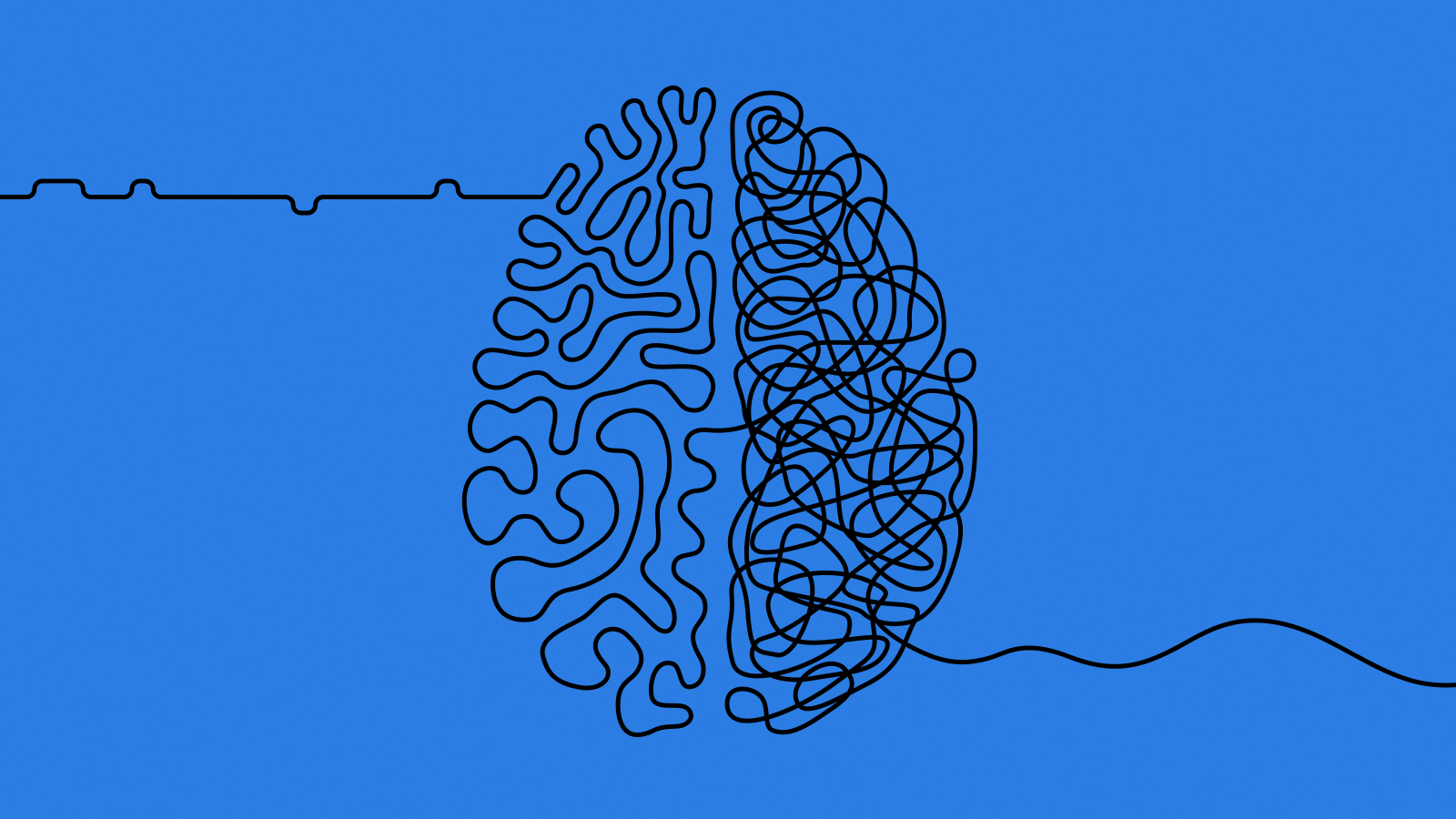
The human mind, just like any other piece of fine technology, can get stuck.
An endless circle of questions can cause the mind to jam in the desperate attempt to solve a dilemma which is not easily solved. The instinct is to continue using this one tool that human beings have different from any other species, the conscious brain. Logic, rationality, these appear to be the only routes that can be explored. Little does the realization that the attempt is not solving the problem at all and is, in fact, creating an overarching one: overthinking.
Why at times it is not possible to harness our mental and logical power to answer a particular type of question?
Some things we ask ourselves have lots to do with how we feel, our emotional brain. And if those dilemmas demand that we take action then, even more, when we force an impossible rational process, we will be paralyzed into inaction by this incapable rational thinking.
So, you could now be thinking, ok, once I know the kind of questions that appear to be based on logic but are, in fact, irrational and intertwined with emotions, surely I could stop myself from going down that rabbit hole. It sounds like a great plan. But how can we tell illogical/emotional questions from logical/rational ones? From where we stand, at first, they all look the same. A good starting point is noticing their repetitiveness. If you’ve been trying to answer some questions to the best of your ability but they keep relentlessly coming back, there is a good chance you’re facing an irrational question.
Secondly, look at the characteristics of the question: is it time-bound? is it clearly definite in its aim? If not, try to rephrase the question in clearer terms, to maximize the chance of finding better answers. This appears particularly exemplary with existential questions, usually open-ended and somewhat vague in their formulation: Will I ever be happy? Was I a good enough friend? What is the purpose of my existence? To these types of questions, you might not be able to find good, lasting answers, by following a rational thinking process.
To be fair, a straightforward answer to these questions might not even exist.
This is what could be defined as emotional questioning, asking something of the human brain that it cannot possibly grasp as it is in a different moment in the time-continuum: in a past that we can’t change or in a future we still can’t see. These are questions that could come from a place of anxiety, or from a place of pain, remorse; quite often a combination of all these factors. The entrapped emotions may themselves need therapeutic attention.
“It is extremely difficult to stay alert and attentive, instead of getting hypnotised by the constant monologue inside your own head (…) learning how to think really means learning how to exercise some control over how and what you think. (..) Think of the old cliché about “the mind being an excellent servant but a terrible master””.
– D.F. Wallace
Now that we’ve closed in on the issue, and we’ve turned an apparently good strategy – indulging in the effort of finding answers to emotional questions – into a real villain, let’s spend a moment appreciating the secondary effects of spending lots of time in this circular thinking process.
A good example could be adapting to a new environment, like a new job, where by definition there isn’t a sense of familiar predictability and one must adjust to some level of uncertainty, under pressure of the so-called “impostor syndrome”, an emotional reaction that, in new environment where we’re desperate for reassurance, makes us temporarily over-sensitive to external and internal approval or criticism and prone to self-questioning.
The conscious mind is struggling to find its flow and might start to be distracted by a number of questions analyzing every little thing, decision, action; a bit like living under a microscope. As a result of this implacable thinking, we might feel more tired than usual and silly little mistakes could crop up. By continuing on this path, the level of productivity can start to seriously be impacted, our basic functions – eating, sleeping, and so on – hindered. From here, it is a short step to feeling more insecure; we’ll be validating the “impostor syndrome” and creating the dangerous effect of self-fulfilling prophecy.
Under the pressure of building stress, the usual human stream of consciousness gradually becomes more rigid, more fixated, even obsessed. Whilst living a moment of emotional imbalance, feeling like we have less self-control than usual, our mind is misled into a hyper-controlling behaviour, in the hopeless illusion of grasping what’s slipping away.
“Sometimes happens that I cannot easily shake off the village. The thought of some work will run in my head and I am not where my body is — I am out of my senses. In my walks I would fain return to my senses. What business have I in the woods, if I am thinking of something out of the woods?”
– Henry David Thoreau
We’ve explored the issue of overthinking, unveiling the illogical logic on which it stands, is reinforced and maintained. We’ve sensed the emotional ache the individual is now experiencing. How can we step outside of the cage and free our mind from this unhealthy perpetual “back and forth” so it can start to flow again?
You can’t stop a question from coming but you can definitely control the urge to reply.
Once you have completed the crucial first step of realizing that you’re stuck in a vicious circle, where the answers you try to find, paradoxically, maintain and even reinforce the endless list of questions, now the door is open to a powerful choice. If you stop playing the game and let the question float in the air, despite an initial unsettling feeling of something being unresolved, it will eventually fade, covered by other thoughts or the simple course of the day.
That’s it?
This apparent simplicity is deceptive. The task requires more mental strength and commitment than one would expect.
The temptation could even be too hard to resist. So, it could be useful, at times, to find a little extra support in writing – almost entrapping – the endless internal dialogue on a piece of paper. Capturing the illogical stream of words in a constrained space will help control it, while still, effectively, freeing the mind from the burden of storing it.
So now the mind can go back to serve its original purpose of enhancing your living experience instead of stalling it.



